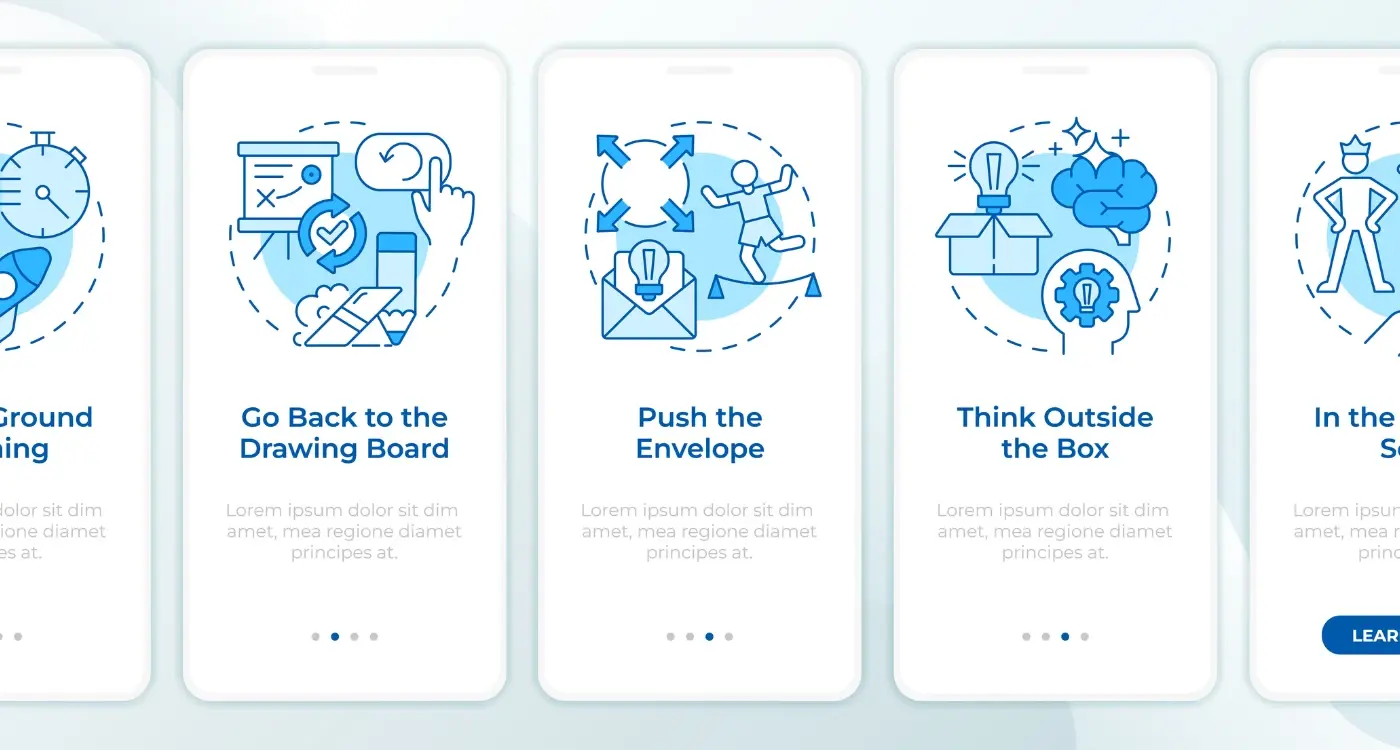How Can Competitions and Challenges Boost Your App Usage?
Apps that use competitions and challenges see retention rates that are nearly three times higher than those that don't—and I've witnessed this transformation firsthand across dozens of projects. When we started adding competitive elements to our clients' apps, the results were honestly a bit mad. Users who might browse for thirty seconds suddenly found themselves checking back multiple times a day, comparing scores with friends, and genuinely caring about their progress.
The psychology behind this is actually pretty straightforward; humans are naturally wired to compete, achieve goals, and seek recognition from others. It doesn't matter if you're running a fitness app, a language learning platform, or even a productivity tool—the moment you introduce elements like leaderboards, achievement badges, or time-limited challenges, you tap into something primal that keeps people coming back.
The best competitions don't just reward winners; they make everyone feel like they're progressing towards something meaningful
But here's the thing that most app developers get wrong: they think slapping a few badges onto their existing features will magically boost engagement. That's not how it works. Successful app competitions require careful planning, genuine rewards that matter to your users, and a deep understanding of what motivates your specific audience. You can't just copy what worked for someone else's gaming app and expect the same results in your finance tracker.
Over the next chapters, we're going to walk through everything you need to know about building competitions and challenges that actually work. From understanding what makes people tick, to setting up your first challenge, to avoiding the common pitfalls that can kill user interest faster than you can say "game over."
Why People Love Competitions in Apps
There's something deeply satisfying about beating other people at games—even when those people are strangers using an app on their phones. I've built dozens of apps over the years, and the ones that really stick with users? They almost always have some kind of competitive element baked in.
It's not rocket science, really. We're wired to compete; it's part of being human. When you add a leaderboard to your app or create weekly challenges, you're tapping into something that goes way deeper than just wanting to use your features. You're giving people a reason to come back tomorrow.
But here's the thing—it isn't just about winning. Sure, some users love being number one on the leaderboard, but most people get their kicks from smaller victories. Beating their personal best. Moving up one spot. Completing a challenge they couldn't finish last week. These micro-wins keep people engaged far better than any push notification I've ever written.
The Psychology Behind App Competitions
What makes competitions work in apps is the same reason people check social media obsessively—they create unpredictable rewards. You never know if today's the day you'll climb higher on the rankings or unlock that badge you've been chasing. This uncertainty keeps your brain interested in ways that predictable experiences simply can't match.
I've seen fitness apps where people log workouts they wouldn't normally do, just to stay ahead of their friends. Language learning apps where users practice daily streaks for months because they don't want to lose their position. The competition becomes the habit-forming mechanism that keeps your app relevant when everything else is fighting for attention.
Setting Up Your First App Challenge
Right, so you've decided to run your first challenge—brilliant! But here's the thing: most people jump straight into the technical setup without thinking through the basics first. I've seen too many apps launch competitions that fizzle out because they didn't plan properly from the start.
The first question you need to answer is simple: what behaviour do you actually want to encourage? Are you trying to get people to open the app more often? Share content? Complete their profiles? Make purchases? Your challenge needs to directly support one clear goal, not three or four different ones.
Choose Your Challenge Type
There are several types of challenges that work well in mobile apps, and each serves different purposes:
- Daily streaks (like Duolingo's learning streaks)
- Leaderboard competitions between users
- Personal achievement challenges
- Time-limited events with specific targets
- Social challenges where friends compete against each other
I always recommend starting with personal achievement challenges for your first attempt. They're easier to implement, don't require complex social features, and users can participate at their own pace without feeling pressured by others.
Set Clear Rules and Timeframes
Your challenge needs crystal clear rules that a nine-year-old could understand. Seriously—if there's any confusion about how to participate or what counts towards the challenge, people will give up before they even start. Write out the rules in plain English and test them with someone who doesn't know your app inside and out.
As for timing, shorter challenges work better than longer ones for beginners. A week-long challenge feels achievable; a month-long one feels overwhelming. You can always run another challenge next week if the first one goes well!
Start small with a simple 7-day personal challenge that encourages one specific action—you can always make future challenges more complex once you've learned what works for your users.
Rewards That Actually Matter to Users
Here's the thing about app rewards—most of them are rubbish. I've seen countless apps offer virtual badges, points that can't be redeemed, or discounts on products users don't actually want. After years of testing different reward systems, I can tell you that users see right through meaningless prizes.
The best rewards fall into three categories: time savers, money savers, and status boosters. Time savers include premium features like ad-free experiences or priority customer support. Money savers are straightforward—actual cash, gift cards, or meaningful discounts on things people buy anyway. Status boosters give users bragging rights, like exclusive access to new features or special recognition within the app.
What Users Actually Value
But here's what really matters: the reward has to connect to why people use your app in the first place. If you're running a fitness app, don't offer cooking equipment as prizes (yes, I've seen this!). Offer gym memberships, workout gear, or healthy meal delivery credits instead.
- Cash or gift cards (always popular)
- Premium app features or subscriptions
- Early access to new features
- Physical products related to your app's purpose
- Recognition or special status within the app
- Experiences that connect to your brand
One client's meditation app saw massive engagement when they started offering free subscriptions to meditation retreats as prizes—it perfectly matched what their users cared about. Another fintech app found that small cash rewards (even £5) performed better than much more expensive branded merchandise.
The key is testing different reward types with your specific audience. What works for a gaming app won't work for a productivity tool, and that's perfectly fine. Focus on rewards that genuinely excite your users rather than what seems impressive on paper.
Making Challenges Feel Fair and Fun
Here's the thing about app challenges—they can go from exciting to frustrating in about five seconds flat if users feel like the game is rigged. I've seen brilliant competition ideas completely backfire because the challenge felt impossible or unfair to regular users.
The sweet spot? Making challenges tough enough to feel rewarding when completed, but achievable enough that users don't give up halfway through. This means understanding your user base properly. If you've got casual users competing against power users who spend hours in your app daily, that's not going to end well for anyone.
Level the Playing Field
Smart apps create different tiers or categories for challenges. Fitness apps do this brilliantly—they'll have beginner, intermediate, and advanced challenges running simultaneously. Or they'll base competitions on percentage improvement rather than absolute numbers. A user who increases their activity by 50% should feel just as accomplished as someone hitting massive absolute numbers.
The moment users feel like they can't possibly win, they stop trying altogether—and that's when you lose them for good
Keep the Rules Crystal Clear
Nothing kills the fun faster than confusing rules or moving goalposts. Make sure users understand exactly what they need to do, how long they have to do it, and what they'll get for completing it. I always tell clients to test their challenge instructions on someone who doesn't know the app well—if they can't understand it immediately, neither will your users.
Also, be transparent about how winners are chosen. Random draws? Highest scores? Most improvement? Users need to know what they're working towards. Mystery mechanics might work in some games, but they're deadly for competitions where people are investing real time and effort.
Using Data to Track What Works
Right, let's talk about something that genuinely excites me—well, maybe that's just me being a bit of a data nerd! But seriously, without proper tracking, you're basically flying blind with your app competitions. I've seen too many brilliant challenge ideas fall flat because nobody bothered to measure what was actually happening.
First things first: you need to track the basics. How many people are starting your challenges? How many are finishing them? What's your drop-off rate at each stage? These numbers tell you everything about where users are getting stuck or losing interest. I always set up event tracking for every single interaction—when someone taps "Join Challenge," when they complete their first task, when they share with friends.
Key Metrics That Actually Matter
Don't get overwhelmed by data—focus on what moves the needle. Here's what I track religiously:
- Challenge completion rates (aim for 60% or higher)
- Time spent in challenge sections vs. regular app areas
- Daily active users during challenge periods vs. baseline
- Social sharing rates and viral coefficient
- Retention rates for challenge participants vs. non-participants
- Revenue impact (if your app monetises through purchases or ads)
But here's the thing—raw numbers don't tell the whole story. You need to segment your data. Are new users behaving differently than long-time users? Which demographics respond best to competitive elements? I've found that breaking down performance by user cohorts reveals patterns you'd never spot otherwise.
Tools and Implementation
You don't need fancy enterprise analytics to get started. Most apps can use Firebase Analytics or Mixpanel to track custom events. Set up conversion funnels for your challenges and create dashboards that update in real-time. Trust me, watching engagement spike during a well-executed challenge never gets old! The key is making data-driven decisions for your next competition.
Common Mistakes That Kill User Interest
Right, lets talk about the stuff that goes wrong. I've seen brilliant app competitions completely flop because of basic mistakes that could have been avoided. The biggest killer? Making competitions too complicated. When you need a manual to understand how to enter your challenge, you've already lost half your users.
One client I worked with—they had this points system that was more complex than tax returns. Users had to complete daily tasks, weekly challenges, AND monthly goals just to qualify for a basic reward. Honestly, it was mental. People want to open your app, see what they need to do, and get on with it. Keep the rules simple and the path to rewards crystal clear.
Never launch a competition without testing it with real users first. What makes perfect sense to you and your development team might be complete gibberish to your actual users.
Timing and Frequency Disasters
Another massive mistake is running competitions all the time. I know it sounds backwards, but constant challenges actually reduce engagement rather than boost it. Users get competition fatigue—they stop caring because theres always another one starting tomorrow.
And dont get me started on poor timing. Running a fitness challenge over Christmas? A productivity competition during school holidays? Come on. You need to think about when your users actually have time and motivation to participate.
Rewards That Miss the Mark
The final nail in the coffin is rubbish rewards. Generic gift cards and branded merchandise just dont cut it anymore. Users can smell a lazy reward strategy from miles away. Your prizes need to connect with why people use your app in the first place, not what you had lying around in the marketing cupboard.
Building Long-Term Engagement Beyond One-Off Events
Here's the thing about competitions in apps—they're brilliant for getting people excited, but what happens when the challenge ends? I've seen so many apps spike during a competition only to watch their daily active users plummet right back down afterwards. It's a bit mad really, because most developers treat challenges like fireworks instead of building blocks.
The secret isn't running bigger competitions; it's creating what I call "engagement bridges" between your events. Think about it—if someone just spent two weeks getting really engaged with your app during a challenge, they're primed to stay active. But if you go silent for a month afterwards? You've basically trained them to forget about you.
Creating Engagement Bridges
The best apps I've built use competitions as launching pads for ongoing engagement. Here's what actually works:
- Post-challenge follow-ups that acknowledge participants and tease the next event
- Mini-challenges or daily streaks that keep the competitive spirit alive between big events
- Leaderboards that reset weekly but maintain all-time records
- Achievement systems that unlock gradually over months, not days
- Community features where challenge participants can stay connected
One client saw their retention rate jump from 23% to 67% just by adding weekly mini-challenges between their monthly competitions. Nothing fancy—just small, achievable goals that reminded users why they downloaded the app in the first place.
The key is treating each competition as part of a longer story, not a standalone event. Your users should feel like they're progressing towards something bigger, even when there isn't a major challenge running. Because honestly? The apps that master this approach don't just get downloads—they build genuine habits that stick around for years.
Conclusion
Right, we've covered a lot of ground here—from why people get genuinely excited about app competitions to tracking what actually works in the real world. And honestly? The apps that nail this stuff properly see some mad results. We're talking 40-60% increases in daily active users during challenge periods, with a good chunk of those people sticking around afterwards.
But here's the thing that really matters: app competitions aren't just about boosting your numbers for a few weeks. They're about creating moments where your users genuinely connect with your app in a different way. When someone completes a challenge they've been working on for days, there's this little dopamine hit that changes how they think about your app. It stops being just another icon on their phone and becomes something they actually look forward to opening.
The beauty of well-designed challenges is they don't feel like work—they feel like play. And when people are having fun with your app, they tell their mates about it. They screenshot their progress. They get competitive with friends. That's the kind of organic growth you can't buy with ads.
Look, you don't need to launch some massive tournament tomorrow. Start small. Test a simple weekly challenge with your existing users and see how they respond. Watch the data, listen to feedback, and iterate from there. The apps that succeed with competitions are the ones that treat them as an ongoing conversation with their users, not a one-off marketing stunt.
Your users want to be engaged—they're practically begging for it. Give them something worth competing for, and they'll reward you with the kind of loyalty that makes building apps worthwhile.
Share this
Subscribe To Our Learning Centre
You May Also Like
These Related Guides

What Are the Essential Elements of Building App Communities Online?

How Do I Create an Onboarding Flow That Reduces App Abandonment?



